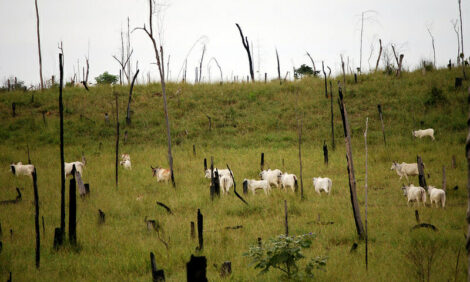



Cattlemen Urge Congress to Approve US-Colombia Trade Agreement
WASHINGTON - The National Cattlemen’s Beef Association (NCBA) supports swift passage of the US-Colombia Trade Promotion Agreement, as urged this week in President Bush’s correspondence with Congress.The cattlemen said that the trade agreement has significant economic, political, and national security implications for the United States and for all nations in the Andean region, as the White House had already noted.
But cattle producers are also anxious to correct the serious inequities that exist between US exports to the region and goods that are imported from Colombia.
While 90 per cent of Colombian products currently shipped to the United States are free from tariffs, most US exports face significant tariffs and other restrictions when entering Colombia. This is due in part to the Andean Trade Preference and Drug Eradication Act (ATPDEA), which Congress recently extended by an overwhelming margin.
"The United States has taken these steps to help lift the economy of some key Latin American allies, and we understand the need for that," said NCBA President Andy Groseta.
"But America’s farmers and ranchers find it very hard to compete in a global economy when imports enter the United States duty-free, while our outbound products face significant tariffs and trade barriers."
In 2006, Colombia agreed to open its market to all US beef and beef products. While this policy is much-appreciated by US cattlemen, the US-Colombia TPA is still needed in order to make US beef available and affordable to residents of this region. Presently, US beef faces an 80 per cent tariff upon entry into Colombia.
"We’re making progress with nearly all of our trading partners in terms of getting their markets reopened to US beef," Mr Groseta said.
"But in order to make our product competitive and affordable, we need to keep working to reduce tariffs and break down trade barriers. How do we even know what a market's potential could be, when our beef is faced with these outrageously high tariffs?"
TheCattleSite News Desk


